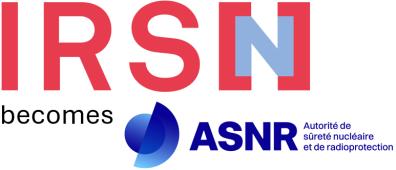An innovative institute

In order to adapt to the rapid changes in its environment and to meet the challenges of nuclear safety and radiation protection, the Institute has set itself a goal in terms of performance, innovation and attractiveness. In 2022, following the end of the Covid 19 health crisis, the Institute's transformation process accelerated as part of its Ambitions & Strategy 2030 project.
Digital strategy and data
Digital transformation entails far-reaching changes in the way IRSN carries out its activities, but is also a source of new opportunities for carrying out its missions with even greater acuity and relevance. With the ambition of making digital technology a lever for improving its performance, the Institute has defined a digital strategy and a strategy for the governance and development of its data assets that will enable it to meet the challenges of tomorrow's expertise.
Digital strategy
The Institute's digital strategy focuses on 2 major areas :
- developing and adapting its information system and, more generally, its digital infrastructures to the needs of its business lines (scientific computing and digital simulation, development of experimental platforms and technical platforms, networks supporting expert appraisal activities and technical assistance in the field of security and non-proliferation),
- implementing the conditions for digital interoperability with nuclear designers and operators, the authorities and the State's digital services (support for the data strategy, support for digital communication, support for the dematerialisation of processes and support for the management of the Institute with responsibility, etc.).
A master plan of technological orientations has been drawn up in order to urbanise the information system by adapting security to the sensitivity of the data, guaranteeing digital confidence and performance, while at the same time adhering to a responsible digital roadmap.
Data strategy
The increased possibilities for processing massive amounts of data and making the most of it through Data Science has led IRSN to organise itself in such a way as to harness the potential of data to accomplish its missions.
IRSN has thus defined a strategy for exploiting its data around two major objectives:
- Improving the monitoring carried out by the Institute and detecting weak signals,
- to increase the Institute's expertise, in particular by cross-referencing the data it produces or collects on areas as varied as facilities using ionising radiation, the radiological state of the environment and personal exposure.
The Institute's data strategy is based in particular on the implementation of data governance that complies with the FAIR principle (Easy to Find, Accessible, Interoperable and Reusable), making it possible, among other things, to meet the Open data objectives in accordance with the provisions desired by Law 2016-1321 of 7 October 2016 for a Digital Republic.
The implementation of the data strategy roadmap is consistent with the interministerial roadmap for data, algorithms and source codes.
